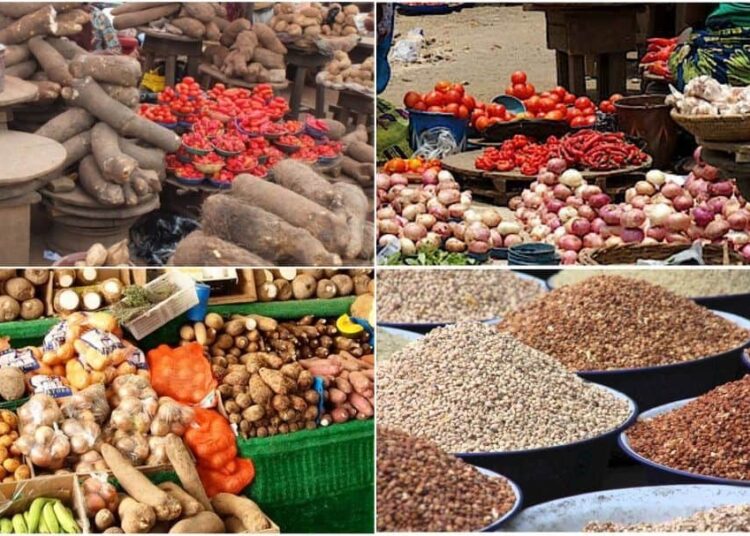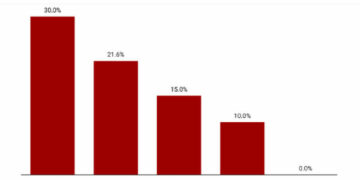More Nigerians have continued to express concern over the proliferation of counterfeit drugs, drinks, food items and other products in the country.
They want relevant authorities to initiate a comprehensive national inquiry into the issue and quickly reverse the trend to prevent worsening health situations and other implications.
LEADERSHIP Data Mining Department’s findings revealed that substandard drugs are responsible for the annual deaths of 500,000 individuals in sub-Sahara Africa. The report also highlights that, approximately, 267,000 deaths annually are attributed to counterfeit and substandard anti-malarial medications.
A substantial number of individuals have taken to online platforms to urge the National Agency for Food and Drug Administration (NAFDAC) to conduct an investigation and enunciate effective measures to address the escalating presence of counterfeit products in the Nigerian market.
Business owner at the popular Utako market in Abuja, Ugochukwu Henry, said the report had affected businesses, but it had not stopped people from buying products in the market.
A customer at the market, Ruth Ode, said the current economic situation in the country is responsible for the menace.
A health expert said there’s a need to clamp down further on the people involved as it may lead to an epidemic.
Experts told LEADERSHIP’s data miners that the surge of counterfeit and substandard goods in numerous Nigerian markets, along with their consumption, is a contributing factor to the rising death toll in the country.
They say the prevalence of fake drugs is an assault on the country’s healthcare industry, asserting that it results in the loss of lives and undermines confidence in medicines, healthcare providers, and in the entire health system.
Most Common Fake Food Products In Nigeria
Findings showed that the most common fake food products in Nigeria include counterfeit and adulterated drugs, fake rice, adulterated vegetable oil, fake alcoholic beverages and expired and substandard food products.
These products do not always meet safety and quality standards, posing risks to consumers.
Just last month, numerous counterfeit products were uncovered at Ezukwu Market (Cemetery Market) in Aba, Abia State, by the National Agency for Food and Drug Administration and Control (NAFDAC).
This has triggered reactions from stakeholders in the health sector.
NAFDAC’s intervention led to the confiscation of approximately 2000 adulterated products, including alcoholic drinks, beverages, and other expired items. This action resulted in the closure of more than 240 shops that were functioning as factories, producing, repackaging, and marketing fake products in unhygienic conditions, according to a statement from the food agency.
The director-general of NAFDAC, Mojisola Adeyeye, put the street value of the confiscated and destroyed fake products at over N750 million. At the end of the week-long security sweep, 10 suspects were arrested, and the agency shut down the market.
LEADERSHIP Friday reports that the consumption of fake foods has far-reaching health implications.
The International Agency for Research on Cancer (IARC) reported that 4.7 percent of overall cancer cases in Nigeria in 2019 was attributable to the consumption of adulterated alcohol.
A quality assurance analyst with a pharmaceutical company in Nigeria, Adekunle Ilori, who defined fake products as counterfeits bearing a striking resemblance to the original or quality products but with deviations in the manufacturing process, said that in the face of a weakened health system, economic challenges, and factors such as cash scarcity, rising transport fares, and low purchasing power, fake products are exacerbating the difficulties faced by many Nigerians.
Ilori urged NAFDAC to adopt more proactive measures in combating fake and substandard products.
He told the food and drug control agency to be uncompromising in its fight against fake products, increase its surveillance, publicly disclose the names of fake products, and engage in public sensitisation.
Following the confiscation of adulterated products in Aba, concerns about fake drugs, cosmetics, and other household items resurfaced on various social media platforms, with fake drugs being highlighted as the swiftest path to death among substandard products.
A Lagos-based pharmacist, Yemi Alabi, lamented that the peddlers of counterfeit products exhibit a high level of adaptability, engaging in large-scale production of fake replicas across a spectrum of items, spanning food products to pharmaceuticals and medical equipment.
Recently, NAFDAC chief executive, Adeyeye, issued a public warning, particularly to healthcare providers, about a batch of counterfeit Meronem, a one-gramme antibiotic used in treating skin and abdominal infections, flooding the markets and posing a significant risk to patients.
Alabi, however, urged that both NAFDAC and its counterpart, the Standards Organisation of Nigeria (SON), should be adequately equipped with manpower, resources, and funding to effectively combat the inflow of counterfeit and substandard products, both from abroad and from local counterfeiters.
Effects Of Fake Foods On Economy
Beyond the health risks, counterfeit products also cause adverse economic effects.
PricewaterhouseCoopers (PwC) estimates suggests that Nigeria loses approximately N200 billion annually due to counterfeit medicines, excluding substandard drugs.
According to a non-governmental organisation, HealthWise International, quantifying the precise economic implications is challenging; the production and distribution of fake foods can have numerous adverse effects at both macroeconomic and microeconomic levels which include: healthcare expenditure, productivity decline, reputation damage, erosion of consumer trust, agricultural productivity, trade barriers, resource diversion, rising regulatory costs, impact on small businesses, and social and economic disparities among others.
A report by HealthWise states: “The counterfeit food industry is already estimated to generate $49 billion annual revenue; any product you think you bought from a reputable and trustworthy outlet can be one of those adding to the $49 billion revenue streams.”
“A large study, involving almost 20,000 adults, found that eating more than four servings of processed food daily was linked with an increased risk of all-cause mortality. For each additional serving, all-cause mortality risk increased by 18 percent.
“Another large study, involving more than 100,000 adults, found that eating 10 percent more ultra-processed foods was associated with above 10 percent increase in the risks of cardiovascular disease, coronary heart disease, and cerebrovascular disorders.
“Indeed, there is no way to know to what extent food fraud is contributing to stunting, which affects 34 percent of under-five African children, with lifelong impacts on physical and intellectual development.”
Tips To Identify Potential Fake Food Products
Pharmacare, an advocacy group on genuine drugs, has listed tips to help Nigerians identify potential fake food products.
- Check labels and packaging. Look for spelling errors, unusual fonts, or poor print quality on labels. Examine packaging for signs of tampering, such as broken seals or unusual openings. Verify that the packaging information matches the product inside. Check for proper seals and packaging. Authentic products usually have proper seals and packaging. Be wary of products with broken or damaged seals. Look for holograms, barcodes, and other security features that are typically present on genuine products.
- Verify brand authenticity. Purchase food products from reputable and well-known brands and retailers. Check the official website of the brand for information on authorised distributors and retailers.
iii. Pay attention to price: be skeptical of food products that are priced significantly lower than the market average. Extremely low prices may indicate a counterfeit or adulterated product.
iv: Check the physical characteristics. Examine the colour, texture, and overall appearance of the food product. Any unusual or off-putting characteristics may be a sign of adulteration. For example, check for unusual discoloration or an abnormal texture in fruits, vegetables, or meats.
- Verify Expiry Dates.
vi.Use Your Senses. Trust your senses—smell, taste, and appearance. If a food product looks, smells, or tastes unusual, it’s best to avoid it. Be cautious of strong chemical or off-putting odors. Purchase from reputable retailers.
Strategies To Combat Menace
Experts have urged the government to strengthen regulatory framework, increase inspections and surveillance, collaborate with industry stakeholders; launch public awareness campaigns to educate consumers about the risks associated with fake foods and how to identify them; improve traceability and labelling.
The government should also invest in food testing laboratories, by strengthening the capacity of food testing laboratories to enable quick and accurate analysis of food samples, among others.
Medical expert, Dr Mohammed Badru, told LEADERSHIP that addressing fake food production requires coordinated efforts from various sectors, including government agencies, industry players, and the public. He also said that regular evaluation and adjustments to strategies, as well as continuous monitoring and enforcement, are essential to maintaining the effectiveness of these measures over time.





